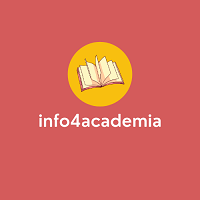The Influence of Work Experience, Professional Skepticism, and Time Pressure on the Auditor’s Ability to Detect Fraud (Empirical Study at the Audit Board of the Republic of Indonesia Representative Papua Province)
Abstract
Keywords
Full Text:
PDFReferences
Anggriawan, E. F. (2014). The Influence of Work Experience, Professional Skepticism and Time Pressure on the Auditor’s Ability to Detect Fraud (Empirical Study at a Public Accounting Firm in DIY). Nominal, Accounting and Management Research Barometer, 3(2). https://doi.org/10.21831/nominal.v3i2.2697
Dandi. (2017). The Influence of Workload, Training and Time Pressure on Auditors’ Ability to Detect Fraud (Empirical Study of BPK RI Representatives of Riau Province).
fatima. (2016). The Influence of Workload, Audit Experience, Personality Type and Professional Skepticism on Auditors’ Ability to Detect Fraud (Empirical study at Public Accounting Firms in the cities of Solo and Yogyakarta). Applied Microbiology and Biotechnology, 85(1), 2071–2079.
Fransisco, F., Fransiskus, F., Indri, I., Pordinan, P., Rara, R., Rizqi, R., Zulmanto, Z., & Umar, H. (2019). The Influence of Competence, Independence and Time Pressure on the Auditor’s Ability to Detect Fraud with Professional Skepticism as an Intervening Variable. Proceedings of the National Expert Seminar, 2009, 1–10. https://doi.org/10.25105/pakar.v0i0.4250
H Salle, Asnawi, M., & Wijaya, A. H. C. (2020). Analysis of Determinant Factors in the Occurrence of Fraud Tendencies (Study of the Papua Provincial Government). KEUDA (Journal of Regional Economic and Financial Studies), 5(1), 80–104. https://doi.org/10.52062/keuda.v5i1.1223
Hanum, T. H. (2016). Competence Against Auditors’ Ability To Detect Fraud (Empirical Study at Yogyakarta Special Region Inspectorate)
Hartan. (2016). The Influence of Professional Skepticism, Independence and Competition on Auditors’ Ability to Detect Fraud (Empirical Study at the Yogyakarta Special Region Inspectorate). 147(March), 11–40.
Indriyani, S., & Hakim, L. (2021). The Influence of Audit Experience, Professional Skepticism and Time Pressure on the Auditor’s Ability to Detect Fraud. Journal of Accounting and Governance, 1(2), 113. https://doi.org/10.24853/jago.1.2.113-120
Nazizah, F., Purnamasari, P., Maemunah, M., Accounting, P., Economy, F., & Business, D. (2019). The Influence of Work Experience, Professional Skepticism, and Time Pressure on Auditors’ Ability to Detect Fraud. 422–425.
Noviyanti, S. (2008). Auditor’s Professional Skepticism in Detecting Fraud. Indonesian Journal of Accounting and Finance, 5(1), 102–125. https://doi.org/10.21002/jaki.2008.05
Regita Ardilassinta Putri, A. S. and W. A. A. (2020). released the corruption perception index (IPK) that Indonesia was ranked 85th out of 180 countries with a score of 38 out of a score of 79. 1(8), 79–91.
Sukriah Ika et al. (2009). Organization on the Quality of Audit Results. 1(2002), 1–11.
Wardani Widya. (2018). The Influence of Forensic Expertise, Professional Skepticism and Time Pressure on Fraud Detection (Empirical Study at the Yogyakarta Special Region Representative Financial and Development Supervisory Agency). 21, 1–9.
Widiyastuti, M., & Pamudji, S. (2009). The Influence of Competence, Independence, and Professionalism on the Auditor’s Ability to Detect Fraud. Value Added Journal, 5(2), 52–73.
Refbacks
- There are currently no refbacks.
Copyright (c) 2023 Ainun Niza Irwanto, Bill Pangayow, Pascalina Van Sweet Sesa, Adolf Siahay, Kurniawan Patma, Klara Wonar
Published by:
AIBPM Publisher
Editorial Office:
JL. Kahuripan No. 9 Hotel Sahid Montana, Malang, Indonesia
Phone: +62 341 366222
Email: admin.ssem@gmail.com
Website: https://ejournal.aibpmjournals.com/index.php/ssem
Supported by: Association of International Business & Professional Management
If you are interested to get the journal subscription you can contact us at admin.publisher@gmail.com
E-ISSN : 3032-324X
DOI: Prefix 10.32535 by CrossREF
INDEXED:
In Process
This work is licensed under a Creative Commons Attribution-NonCommercial-ShareAlike 4.0 International License.


















